While in Stockholm, Sweden, having just completed winning a gold medal at the 1989 World Championships, Mogilny made the life changing decision to become the first Soviet player to defect, leaving behind his family but escaping the totalitarian rule of the communist system, and iron-fisted Soviet old school coach Viktor Tikhonov in particular, whom Mogilny felt would make his life not only at the rink, but outside of hockey, miserable for years to come due to his independent nature.
At the beginning of 1989, former Sabre Don Luce, the club's Director of Amateur Evaluation, traveled to Anchorage, Alaska to to 1989 World Junior Tournament. There, Pavel Bure and linemates Mogilny and Sergei Fedorov, were finishing third (Bure) and tied for fourth (Mogliny and Fedorov) in tournament scoring while leading the Soviets to a 6-1 record and the gold medal. Luce met briefly with Mogilny in Anchorage and gave him a business card, cementing Mogilny's decision to defect at the first opportunity.
That opportunity arrived four months later when the Soviets were given two days in Stockholm after winning the 1989 World Championship. Luce, at home in North America, received a phone call on this date in 1989 from a man who claimed to be Mogilny's agent, Sergei Fomitchev. Unsure if he was really in contact with Mogilny, he asked Fomitchev to have Mogilny repeat what he had said to him in Anchorage. Told then that he had not played very well, Mogilny had stated "I show you next game", prior to scoring a hat trick against Canada to clinch the gold medal.
They met at a mall and drove off. The next two days were spent moving from hotel to hotel to avoid being found while Meehan worked with the U. S. Embassy to arrange the necessary paperwork.
At one point Mogilny, from the far eastern part of Russia where few players have originated from, attempted to call home and midway through the conversation the call was disconnected, giving rise to Mogilny's fears that the call had been traced and the authorities knew where they were.
The day they left they abandoned their rental car and took a taxi to the airport, and once inside the security gates, their fears of the Soviet officials was over. With that, Mogliny had become the first Soviet athlete to defect in 45 years.
Meehan remembers, “He asked me in his broken English, ‘Am I free now?’ " And I said, ‘Yeah, you’re free.’ And he went over and had a beer. He couldn’t believe it. He said ‘free’, he didn’t say ‘safe’. He said ‘free’. I found that to be kind of poignant.”
Fedorov defected less than a year later at the 1990 Goodwill Games in Seattle and shortly afterwards, the Iron Curtain fell allowing Bure to join the NHL without having to defect.
During his rookie season in the NHL, wearing he number 89 presented to him by the Sabres owner Seymour H. Knox III in recognition of his place in the draft where Buffalo selected him and the year of his defection, Mogilny would play 65 games, scoring 15 goals and 43 points as he became acclimated to living in North America and learning a new language and culture. "It was a huge adjustment to come to the NHL. The language barrier was the toughest part. Lack of communication affected me both on and off the ice. It also took some time to get used to the airline travel. I had to deal with a fear of flying," Mogilny recalled.
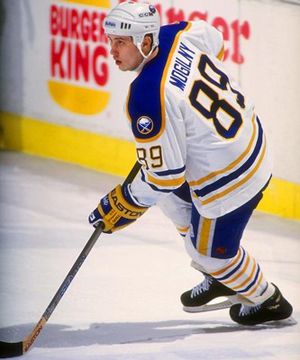
He would double his goal total the following season to reach 30 for the first time.
The arrival of Pat Lafontaine in Buffalo would give Mogilny a world class teammate to work with and his point totals took another jump upwards, finishing 1991-92 with 39 goals and 84 points and became the first Russian on an NHL All-Star Team. Given a year to work together and now fully integrated into life in the United States and the NHL, Mogilny had one of the greatest seasons in league history in 1992-93. He would score 127 points from 51 assists and a remarkable 76 goals in 77 games. His 76 goals remain tied for fifth all-time in a single season with Teemu Selanne and Phil Esposito.
With Lafontaine limited to just 38 games over the next two seasons, Mogilny was named team captain in his absence, the first European to ever captain an NHL club, but his production suffered as a result of the missing Lafontaine.
He was then traded to the Vancouver Canucks and reunited with Bure for the 1995-96 season, in which he would score 55 goals and 107 points, the second highest of his career in both categories.
He would sign with the Toronto Maple Leafs for the 2001-02 season, where he would play for three seasons, including winning the Lady Byng Trophy in 2003 and scoring his 1,000th point in 2003-04, before returning to the Devils for the final season of his career in 2005-06 before retiring with 473 goals and 1032 points in 990 games.
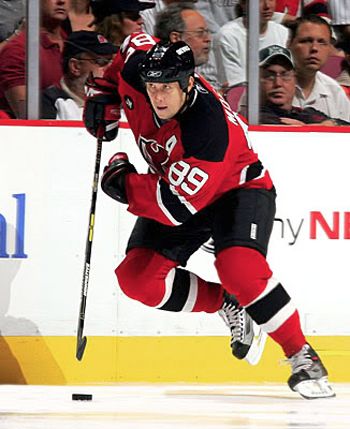
came during the 1996 World Cup of Hockey
When asked following his career about the reasons for his defection, Mogilny responded, “Why did I do it? I did it for freedom. If the bird can fly and the fish can swim, you have to be able to move around the world and be free and not watched constantly. If a human being doesn’t have freedom, that’s not life. It’s like living in a cage. To me, you might as well be dead.”
Vancouver introduced this white home jersey in 1989-90 after a decade of wearing gold jerseys at home. This style was worn through the 1996-97 season when the club got a complete makeover, with new colors and a new logo.
The evolution of this Maple Leafs jersey began back in the 1992-93 season when Toronto adopted a brand new style jersey with a more traditional look based on a sweater first worn back in 1934-35, only now paired with their modern Maple Leafs crest. The jersey first evolved with the adoption of a modern name and number font in 1997-98. While the name remained unchanged, the curvy numbers were replaced in 2000-01 with a return to a more classic block font for the numbers, although now trimmed in blue and outlined in silver, the first time a third color had been used on a Maple Leafs jersey since World War II, when the lettering on the crest was red for a few seasons.
The retro style maple leaf secondary logo was replaced by a new "TML" monogram at the same time the number font was changed in 2000-01.
Mogilny's departure in early May after that year's World Championships in Sweden, effectively marked the end of an era for Tikhnov and the supremacy of CSKA, as prior to the following season Slava Fetisov, Igor Larionov and Vladimir Krutov left the Soviet Union with permission of the authorities to play in the NHL, bringing to a close Red Army's unparalleled streak of championship dominance.
Here is a look at the some of the career highlights of Mogilny.
Here, Mogilny scores his 70th goal of the 1992-93 season, only the seventh player to reach 70 in NHL history.
Finally, an excellent documentary about Mogliny's defection narrated by Meehan that runs 23 minutes and is well worth your time.

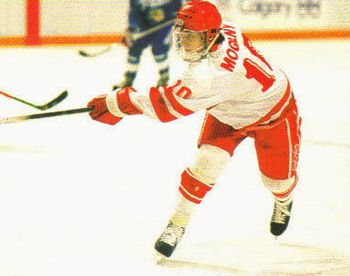
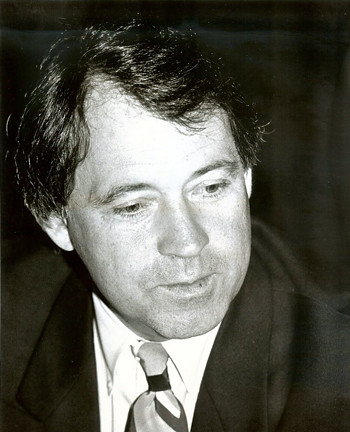
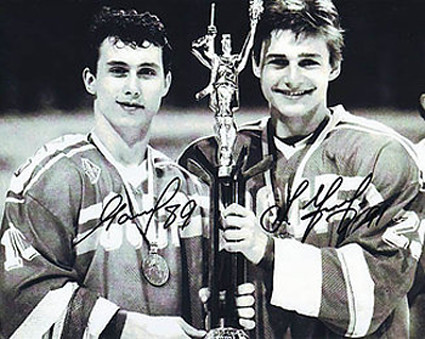
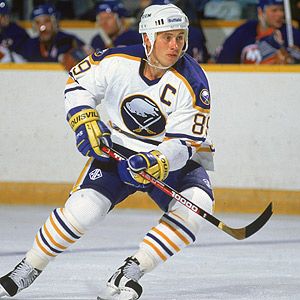

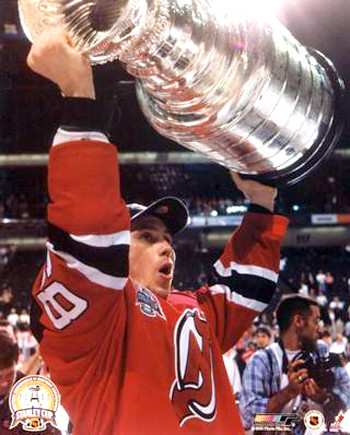
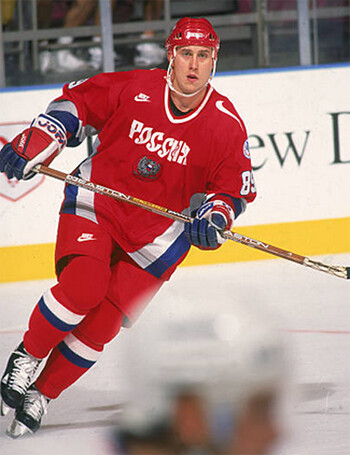
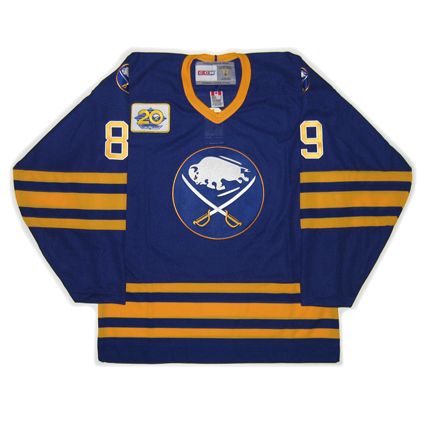
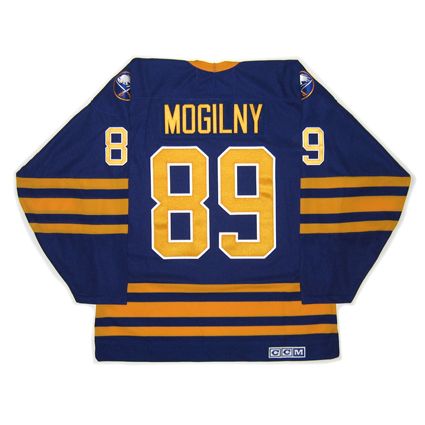
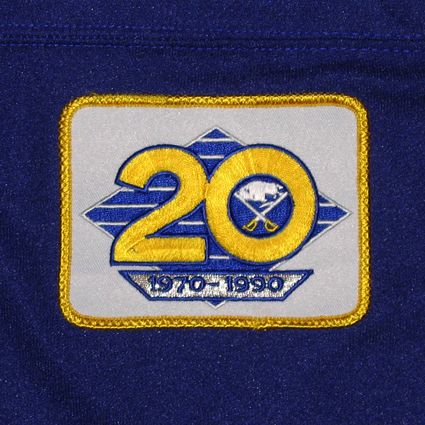
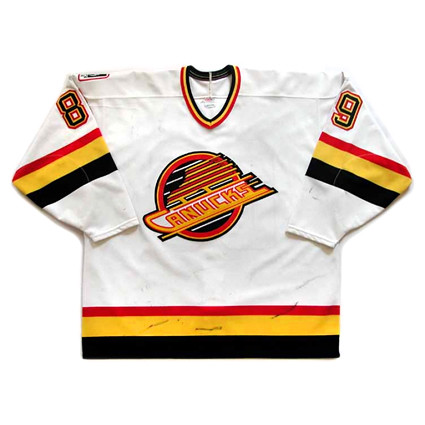
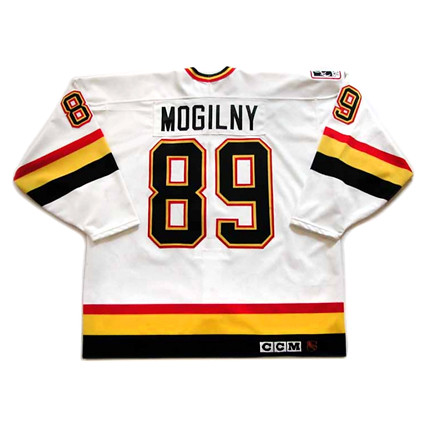
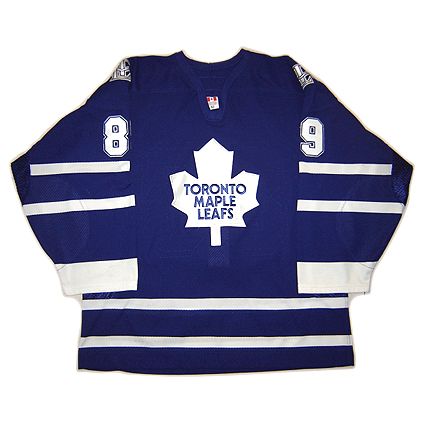

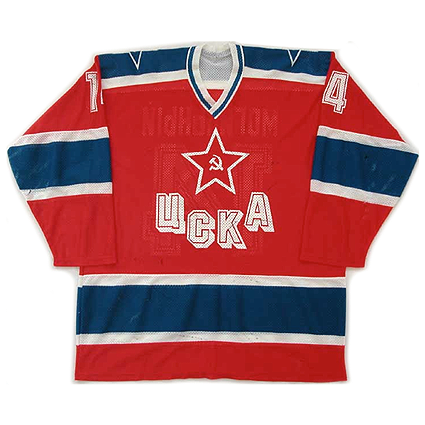
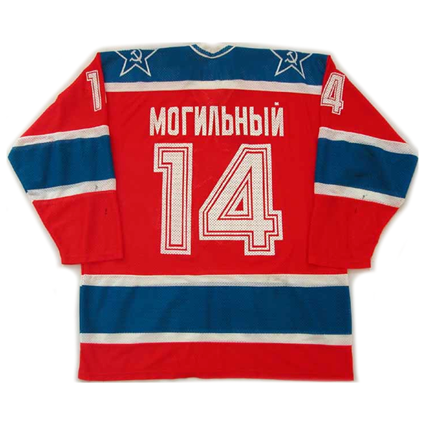










No comments:
Post a Comment
We welcome and encourage genuine comments and corrections from our readers. Please no spam. It will not be approved and never seen.